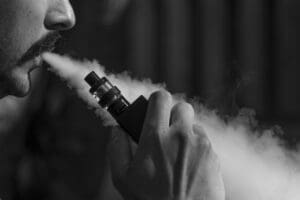Natalie Cole: R&B Singer and Daughter of Nat King Cole Dies at 65:
She was 65. It garnered her multiple Grammy Awards and became a multiplatinum smash, including album of the year.
Cole died at Cedars-Sinai Medical Center in Los Angeles due to complications from on-going health problems, her family said in a statement.
“Natalie fought a fierce, brave battle, expiring how she lived … with dignity, strength and honour.
“I needed to hold back the tears. I understand how hard she fought,” said Aretha Franklin in a statement. “She fought for such a long time. She was among the greatest vocalists of our time.”
Other stars honored Cole on social networking. In a tweet, actress Marlee Matlin called Cole a wonderful songbird plus a great celebrity, composing “she is currently singing in paradise.” Patti LaBelle tweeted, “she’ll be truly missed but her light will shine eternally!”
Natalie Cole had fought with hepatitis and drug issues that compelled her to get a kidney transplant in May 2009. Nat Kelly Cole, their brother, expired in 1995.
When she was only 11 years old, Natalie Cole was inspired by her father at a young age and auditioned to sing with him. She was 15 when he died in 1965, of lung cancer.
She started as an R&B vocalist but after gravitated toward the easy pop and jazz standards that her dad adored.
Her voice was spliced with her father’s in the name cut, offering a delicate duet a quarter century after his passing.
While making the record, Cole told The Associated Press in 1991, she had to “throw out every R&B lick that I ‘d ever discovered and every pop magic trick I ‘d ever learned.
“I did not spill actually any actual tears until the record was around,” Cole said. “Then I wept a whole lot. It was a style of reconnecting with my father, when we began the job. Then when we did the last tune, I needed to say good-bye again.”
She was likewise nominated for an Emmy award in 1992 for a televised performance of her dad’s tunes.
“That was actually my thank you,” she told People magazine in 2006. “I owed that to him.”
But she was most joyful performing and touring live.
“I still adore recording and still adore the stage,” she said on her site in 2008, “but like my father, I ‘ve the most enjoyable when I’m in front of that redoubtable orchestra or that kick-booty big band.”
Her daddy was a recording star, and he climbed to greater heights in the 1950s and early ’60s. He toured world-wide, though deficiency of patrons and inferior standings killed it off the subsequent year, and in 1956 he became the first black entertainer to host a national TV variety show. He spoke out in favor of civil rights and also appeared in a couple of pictures.
When told by residents who said they did not need “unwanted individuals” in the place, the vocalist said, “Neither do I, and if I see (any), I Will be the first to whine.”
The family comprised five kids.
Natalie Cole began singing in school, performing in small clubs.
But in her 2000 autobiography, “Angel on My Shoulder,” Cole discussed how she’d fought heroin, crack cocaine and alcohol addiction for a long time. She spent six months in 1983 in rehabilitation.
She attributed her previous intravenous drug use, when she pronounced in 2008 that she was diagnosed with hepatitis C, a liver disease spread through contact with contaminated blood.
For giving five Grammys to drug user Amy Winehouse in 2008, the Recording Academy was criticized by her.
“I am an ex-drug addict and I really don’t take that sort of things lightly,” Cole described at the 2009 Grammy Awards. Hepatitis C “remained in my body for 25 years and it may still occur to this young woman or alternative junkies that are fooling around with drugs, notably needles.”
Cole received chemotherapy to heal the hepatitis and “within four months, I ‘d kidney failure,” she told CNN’s Larry King in 2009. Until she received a donor kidney on May 18, 2009, she wanted dialysis three times per week. The contribution was eased by the organ procurement bureau One Legacy from a family that had requested that Cole is gone to by their donor’s organ if it was a match.
Cole toured through much of her sickness, frequently receiving dialysis at hospitals round the globe.
“I believe that I’m a walking testimony to you can have scars,” she told People magazine. “You can go through troubled times and still have success in your own life.”
source: via





